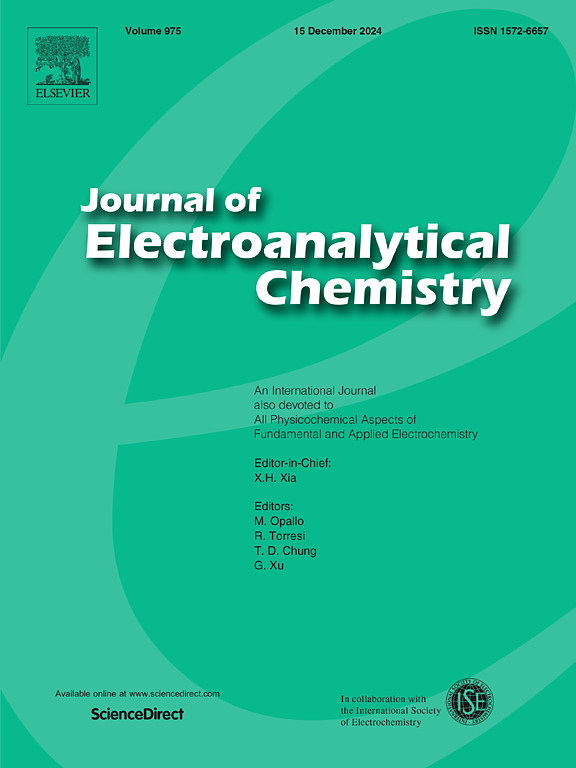The research of ammonium acetate electrolyte with Prussian blue analogue cathode for high performance ammonium ion battery
IF 4.1
3区 化学
Q1 CHEMISTRY, ANALYTICAL
引用次数: 0
Abstract
In recent years, the performance of ammonium ion batteries has become more and more concerned. In this paper, the ammonium acetate electrolyte with Prussian blue analogue (PBA) cathode to achieve high performance ammonium ion battery is researched. We study the structure and physical characteristics of the ammonium acetate electrolyte with different concentration. By testing the Prussian blue analogue electrode with different electrolyte, the specific capacity of the battery with 1 M ammonium acetate is as high as 97 mAh g−1 and 8 M electrolyte has the best high rate performance. In this research, we found that the highest concentration electrolytes doesn't have the best electrochmical performance due to high ammonium ion content suppress the ion transportation and hind the ammonium ion inserting/extracting the PBA cathode. These findings emphasize the need for balanced electrolyte design to harmonize ion mobility and electrochemical stability, offering new insights for aqueous energy storage systems.

高性能铵离子电池用普鲁士蓝模拟阴极乙酸铵电解液的研究
近年来,铵离子电池的性能越来越受到人们的关注。本文研究了以普鲁士蓝类似物(PBA)为阴极的醋酸铵电解液制备高性能铵离子电池。研究了不同浓度乙酸铵电解质的结构和物理特性。通过对不同电解质的普鲁士蓝模拟电极的测试,1 M乙酸铵的电池比容量高达97 mAh g−1,8 M电解质的电池具有最佳的高倍率性能。在本研究中,我们发现最高浓度的电解质并不具有最佳的电化学性能,因为高铵离子含量抑制了离子的运输,阻碍了铵离子插入/提取PBA阴极。这些发现强调了平衡电解质设计的必要性,以协调离子迁移率和电化学稳定性,为水储能系统提供了新的见解。
本文章由计算机程序翻译,如有差异,请以英文原文为准。
求助全文
约1分钟内获得全文
求助全文
来源期刊
CiteScore
7.80
自引率
6.70%
发文量
912
审稿时长
2.4 months
期刊介绍:
The Journal of Electroanalytical Chemistry is the foremost international journal devoted to the interdisciplinary subject of electrochemistry in all its aspects, theoretical as well as applied.
Electrochemistry is a wide ranging area that is in a state of continuous evolution. Rather than compiling a long list of topics covered by the Journal, the editors would like to draw particular attention to the key issues of novelty, topicality and quality. Papers should present new and interesting electrochemical science in a way that is accessible to the reader. The presentation and discussion should be at a level that is consistent with the international status of the Journal. Reports describing the application of well-established techniques to problems that are essentially technical will not be accepted. Similarly, papers that report observations but fail to provide adequate interpretation will be rejected by the Editors. Papers dealing with technical electrochemistry should be submitted to other specialist journals unless the authors can show that their work provides substantially new insights into electrochemical processes.

 求助内容:
求助内容: 应助结果提醒方式:
应助结果提醒方式:


